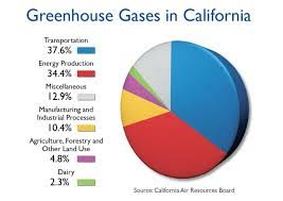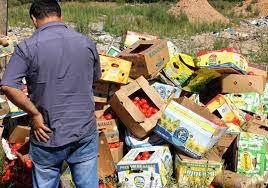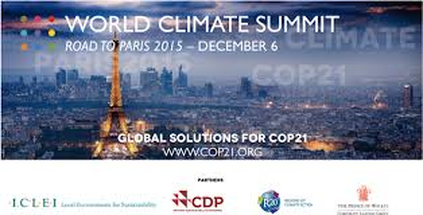 Global Climate summit in Paris 2015 Global Climate summit in Paris 2015 “California has demonstrated time and again that when we set our collective sights, no goal is too ambitious,” Pérez said in a statement. “SB 350 and SB 32 will put California’s creativity and ingenuity to work for the sake of our children and future generations.” Climate work partnering EDF and California’s Global Warming Solutions Act of 2006 (AB 32), was landmark legislation that set a strict statewide limit on greenhouse gas emissions, and confirmed California’s commitment to transition to a sustainable, clean energy economy. The rewards and outcomes are demonstrative since AB32 implementation. There have been advancements in clean energy and energy efficiency including reduced emissions. Currently California is on the road to 50 percent petroleum use reduction. In an article published this month in “California Dream 2.0 by Tim O’Connor, he writes “Fuel combustion chokes our state with exhaust, releases a massive amount of global warming pollution and undermines our economic security.” California drivers spend $50 billion a year on 20 billion gallons of gas, and a majority of the money flows directly out of the state. O’Connor outlines four easy concepts to meet a 50 percent reduction: 1) The growth curve for alternative fuels, and the vehicles that use them, is at an acceleration point—and there is more opportunity for growth. Examples include the private and commercial use of biodiesel, natural gas, electricity and renewable diesel in some government and commercial fleets like Fedex, United Airlines (jet fuel), Waste Management operations like garbage trucks, as well as buses. 2) Cars and trucks are becoming more efficient in using gasoline and diesel—but still room for improvement by an estimated 32 percent by 2025. Vehicles will advance from getting only 32.6 miles per gallon (MPG) to 48.7 MPG. Plug in hybrids like the Chevrolet Volt and Prius electric vehicles get over 100 MPG. 3) Changes in driving habits, new mobility solutions, and coordinated urban planning are meeting transportation needs with more efficient and diversified solutions—and the trend is expected to continue. In 2014 a Caltrans survey revealed Californians are driving less than they did a decade ago by using alternative means like walking, biking, and public transit. The trend is expected to continue. 4) Setting a 50 percent petroleum use reduction standard drives innovation and investment while keeping money in California’s economy (remember big oil profits are channeled out of the state) yielding massive room for additional economic development across the state. California uses more gasoline and diesel than any other state, and 60 percent of the fuel comes from imports, which substantiates the claim that money spent here is being routed out of the state. According to University of California economist David Roland-Holst, every dollar saved at the pump amounts to $16 dollars of net economic activity. The reduction of nine billion gallons of gasoline and diesel purchased in California every year—about a 50 percent reduction—at $3 gallon equals $27 billion saved in fuel purchases in 2030. Or stated another way, $232 billion in net economic activity could be saved. Reducing petroleum use by 50 percent coupled with the decline in driving as people chose alternative methods of transportation are goals worth striving towards. The passage of SB350 is a path towards meeting those goals. Political fights between the state and oil companies have erupted before whenever legislators pushed bills to require better mileage, higher taxes and cleaner fuel. “SB 350 is something entirely different,” said Tupper Hull, spokesman for the Western States Petroleum Association. “It is an attempt to essentially put oil companies out of business,” they said. Fear mongering and threats by big oil in California are not uncommon. They take out “ads warning of state-mandated gas rationing, surcharges on minivans, penalties on people who consume too much gas, and invasion of motorists’ privacy by tapping into their cars’ on-board computers,” all of which is rebuked by legislators as hyperbole. SB350 passed the California Senate by 24-14 vote, but The Assembly is a different situation, and they are enlisting the help of Gov. Jerry Brown. He and President Pro Tem Kevin deLeon will be attending the global climate summit in Paris later this year, and the hope is that SB350 will be law by then putting California in the forefront in curbing climate change and a model for the nation and the globe. Resources Sacramento Bee https://www.edf.org/climate/AB32 http://articles.latimes.com/2014/mar/13/local/la-me-caltrans-study-20140314
1 Comment
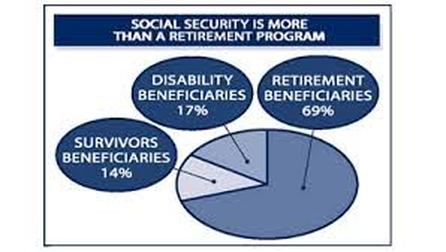 Social Security for 60 million Americans Social Security for 60 million Americans Social Security is viewed as an entitlement by some politicians, although technically it is not because employees and employers pay into the system in order to create a retirement system. Because of so-called entitlement perception, various ways of calculating or re-calculating benefits looms large during budget time in Washington particularly by Republicans. One of the most punitive calculations for cost of living increases is called Chained CPI, which has been proposed before but not enacted. This method is a measure of inflation that grows more slowly and ensures Social Security recipients would get smaller increases. Some estimates as high as $10,000 over a lifetime. Chained CPI changes which items it incorporates into inflation calculations when prices climb and consumers switch to cheaper alternatives. For example, when beef gets too expensive and people start buying more chicken, under chained CPI the inflation index would also switch to measuring the price of the cheaper chicken, instead of the cumulative effect of higher prices on everything. Supporters say the method is more accurate because it measures what people are actually buying. Opponents call it the "cat food index" because it leaves people on fixed incomes with less money, forcing them to buy cheaper and cheaper alternatives for basic staples like pet food, according to a report in the Huffington Post. Depending on a person's income and age, shifting to the new inflation gauge could mean cuts of thousands of dollars from retirees' future incomes, they said. Senator Bernie Sanders (I-Vt.) who is currently running to be the Democratic nominee for president in 2016 has been a consistent critic for years against chained CPI, and would be again this year if it is proposed. "At a time when the wealthy and corporations are doing phenomenally well, median family income is nearly $5,000 less than it was in 1999," Sanders continued. "When you look at a budget, it is imperative that you look at the overarching reality of American life, and today when we look at America we have to understand that we have an obscene level of income and wealth inequality, the highest of any major country on earth, and worse in America today than at any time since 1929." Although President Barack Obama has proposed chained CPI in the past to leverage something from Republicans, he most likely will not propose it for a reduction in benefits. Last February the budget predictions, however, left out mentioning increase for Social Security benefits, which was cause for concern. There was only general language against “slashing” benefits: “The Administration will oppose any measures that privatize or weaken the Social Security system and will not accept an approach that slashes benefits for future generations or reduces basic benefits for current beneficiaries.” This language allows for negotiating with Republicans who continually try to reduce Social Security benefits and raise the age of eligibility. This year will not be any different. The president’s current transfer reallocation plan insures that both the Social Security retirement fund and the disability fund would be able to pay full benefits until 2033. Without the reallocation transfer the 11 million disabled would have their benefits reduced by one-fifth or 19 percent. With this cut the severely disabled would see their incomes fall below the poverty line. But, there will likely be a partisan fight on transfer reallocation proposal because the House Republicans passed a rule in January that would hold a transfer between the two funds hostage unless there is a plan in place to cut Social Security benefits overall. Repubublicans do not see anything wrong with putting millions of vulnerable Americans at risk. The arguments they use are myths designed to sway public opinion against a vulnerable population. What is not a myth is how difficult it is to qualify for disability benefits. Still, they argue incorrectly that people receiving disability do not deserve it. Legislators are back in Washington after Labor Day on September 8 to begin work before they take another break at the end of September. Social Security benefits might not be at the top of their list, but it certainly is for 60 million Americans. Resources http://www.fedsmith.com/2015/08/19/cola-increase-in-2016-appears-less-likely/ Huffington Post http://www.ssa.gov/oact/progdata/icpGraph.html http://ourfuture.org/20150206/president-obamas-2016-budget-relatively-good-on-social-security?gclid=CMmny8GEwscCFVKEfgodxRkMSw
 US Constitution 14th Amendment US Constitution 14th Amendment Admittedly legal scholars, however, have disagreed over whether the Wong Kim Ark precedent applies when alien parents are in the country illegally. Congress can act outside of the US Supreme Court by restricting birthright citizenship in two ways. First by statutory redefinition of the term jurisdiction, or by overriding both the Wong Kim Ark ruling and the Citizenship Clause itself through an amendment to the Constitution, but no such proposal has been broached because the process could take years and the political repercussions to legislators is untenable. The current interest in punitive measures to deny citizenship took root in the Great Recession of 2008 when unemployment percentages skyrocketed and fear spread that immigrants were taking jobs away from Americans. It’s a phenomenon that has propelled itself into the current Republican discourse as an appeasement to extremist right-wing conservatives, although some could say the scapegoating of immigrants never left. Those who argue for retracting citizenship for children of undocumented immigrants with an amendment need to consider the international law implications. Setting aside the inhumanity and insensitivity of not recognizing children born here as citizens, questions regarding the legality for denying citizenship under international human rights norms could be applicable to the United States. In a position paper from Harvard University published in the Human Rights Journal Vol. 25 in 2009 “Born in the Americas: Birthright Citizenship and Human Rights,” Katherine Culliton-Gonzalez argues revocation of birthright citizenship disparately impacts certain racial or ethnic minority groups and might violate human rights law. Retrogression of birthright citizenship, she says, cannot be substantiated just because other countries do not or have not provided it to all children of undocumented immigrants. International law allows sovereign countries to design their own laws and rules regarding citizenship, but retrogression is problematic under international law. The Dominican Republic is one of the few nations in the Americas that denies birthright citizenship to the children of unauthorized immigrants. This concept was tested in 2005 in the Dominican Republic in the case of Dilcia Yean and Violeta Bosico v. Dominican Republic. The Inter-American Court of Human Rights found that “while the Dominican Republic had the right to enact its own citizenship rules, those rules were also subject to norms providing for the right to a nationality, especially for children, as well as the right to freedom from discrimination,” argues Gonzalez. The Dominican Republic amended its constitution in 2010 to retract birthright citizenship entirely from children of undocumented immigrants; however, this was immediately challenged by a Haitian who was born in the Dominican Republic. The decision of the Inter-American Court in the case of Yean and Bosico children made it clear that any retraction of birthright citizenship displaying discrimination is legally questionable under human rights’ law. Conclusion Three out of four unauthorized immigrants in the US are Hispanic and retraction of birthright citizenship of their children born here would disproportionately affect the country’s Latino population. Evidence of discriminatory intent would be in violation of fundamental equality rights by retrogression. A US constitutional amendment limiting birthright citizenship for children of undocumented immigrants would violate the fundamental human rights norms of the US and be an unwise policy. If the US retracted citizenship from children of the current generation of immigrants and “retrogress” from the standard set by the Fourteenth Amendment, it would be in violation of the most fundamental of all human rights: every person should be treated equally and judged on their own merits. Furthermore, in her final summary Ms. Gonzalez writes, “Congress should not pass an amendment retracting the guarantees of the Fourteenth Amendment, nor should it enact any legislation limiting birthright citizenship. Similarly, as the states are also bound by fundamental human rights law, no state should take any measure limiting birthright citizenship for children of immigrants. The children represent our collective future, and they should be free to realize the promise of the American dream.” Any bill or movement to deny citizenship to children born here of alien parents is unconstitutional on its face value. Moreover, a constitutional amendment to restrict birthright citizenship, even though not technically unlawful, would contradict our Nation’s constitutional history and traditions embracing diversity and tolerance. Resources http://harvardhrj.com/wp-content/uploads/2009/09/Culliton-Gonzalez.pdf http://www.dailykos.com/story/2015/08/20/1413731/-Birthright-Citizenship-The-case-of-Julia-Lynch-1844 https://supreme.justia.com/cases/federal/us/169/649/#715 https://en.wikipedia.org/wiki/United_States_v._Wong_Kim_Ark
 Book of water filter pages Book of water filter pages This is how it works: pages contain nano-particles of silver or copper, which kill bacteria in the water as it passes through. In trials at 25 contaminated water sources in South Africa, Ghana and Bangladesh, the paper successfully removed more than 99% of bacteria, they said. The residual levels of contamination are similar to US tap water, the researchers say. Tiny amounts of silver or copper also leached into the water, but these were well below safety limits. The invention is American and developed by a researcher at Carnegie Mellon University in Pittsburgh, Pennsylvania. Dr. Teri Dankovich has been working on the technology for several years in coordination with McGill University in Canada and the University of Virginia. "It's directed towards communities in developing countries," Dr Dankovich said, noting that 663 million people around the world do not have access to clean drinking water. "All you need to do is tear out a paper, put it in a simple filter holder and pour water into it from rivers, streams, wells etc and out comes clean water - and dead bacteria as well," she told BBC news. "Ions come off the surface of the nano-particles, and those are absorbed by the microbes," Dr Dankovich explained. According to her tests, one page can clean up to 100 litres of water. A book could filter one person's water supply for four years. This is an astonishing break through for countries that have grappling with providing clean drinking water. Projects for digging wells in rural locations could incorporate Ms. Dankovich’s book filters to complete an all encompassing project to find and filter water. The marketing possibilities for book water filters are limitless. It could be sold to governments for use by the military in remote locations, as well as hikers and campers. But the most important application would be to undeveloped countries whose survival depends on clean drinking water.
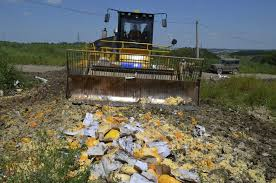 Tons of smuggled cheese pushed into landfill Tons of smuggled cheese pushed into landfill The nation’s minimum monthly income is insufficient. The monthly average cost to live in Russia averages $210, but the minimum monthly income is $155, reported by the American Borgen Project a non-profit organization addressing global poverty and hunger. The project reported before the 2014 Winter Olympic Games in Sochi that despite the harrowing poverty, “it appears that the 2014 Winter Olympic Games, set to be hosted in Sochi, has taken prominence over the rampant poverty in Russia. In 5a Akatsy Street, located in a neighborhood with deteriorating infrastructure, a brand-new multi-million dollar highway brazenly cuts through the surrounding poverty,” they said. “The glossy highway stands in salient contrast to the squalor of 5a Akatsy Street, locales in which residents have barely sustained themselves without running water or a sewage system. While the Russian government sanctions the construction of stadiums and highways, the majority of Sochi residents live in dwindling, contaminated and neglected villages.” Similar to the public show of wealth and glossed over realities of the average Russian citizen at the 2014 Winter Winter Olympics, the Putin government claims the food sanctions are good for local agriculture producers. But the availability of high-priced produce blocks economic access by those living at and below the poverty line. The economics are basic: In scarcity the prices increase and in abundance the prices are reduced. With the sanctions against food imports, Russians living below the poverty line are inordinately affected forcing them not buy high-priced cheese, fruits and vegetables. While Putin has no qualms about sanctioning imports of food, the flow of tobacco leaf to Russian cigarette companies remains high. As far back as 2009, 99 percent of leaf tobacco was imported to the country’s factories with a value of $1 billion. The Russian Federation has one of the highest smoking rates in the world, according the US National Institute of Heath. The World Health Organization has identified "The biggest health problem facing Russia is the very high level of mortality among working aged men," says Martin McKee, an expert in Russian public health at the London School of Hygiene and Tropical Medicine. Life expectancy for Russian men is 60 years of age which is well below the average life span of 77 years for other western European countries. Longevity of men has stagnated, and a major culprit has been high levels of alcohol consumption. Since the breakup of the Soviet Union, alcohol and tobacco use have risen, as Russians have struggled to adapt to economic change, health experts say. If the health and well being of Russian citizens had been considered in administering sanctions against the West, perhaps Putin should have put sanctions on importation of tobacco leaf and alcohol instead of the food that families rely on to feed their children. Resources https://news.vice.com/article/russia-is-destroying-tons-of-western-food-to-mark-a-year-of-retaliatory-sanctions http://www.cnn.com/shows/fareed-zakaria-gps http://www.ncbi.nlm.nih.gov/pmc/articles/PMC3732080/ http://www.tobaccointernational.com/0408/feature2.htm |
Dava Castillo
is retired and lives in Clearlake, California. She has three grown
children and one grandson and a Bachelor’s degree in Health Services
Administration from St. Mary’s College in Moraga California. On the
home front Dava enjoys time with her family, reading, gardening, cooking
and sewing. Archives
November 2015
|
